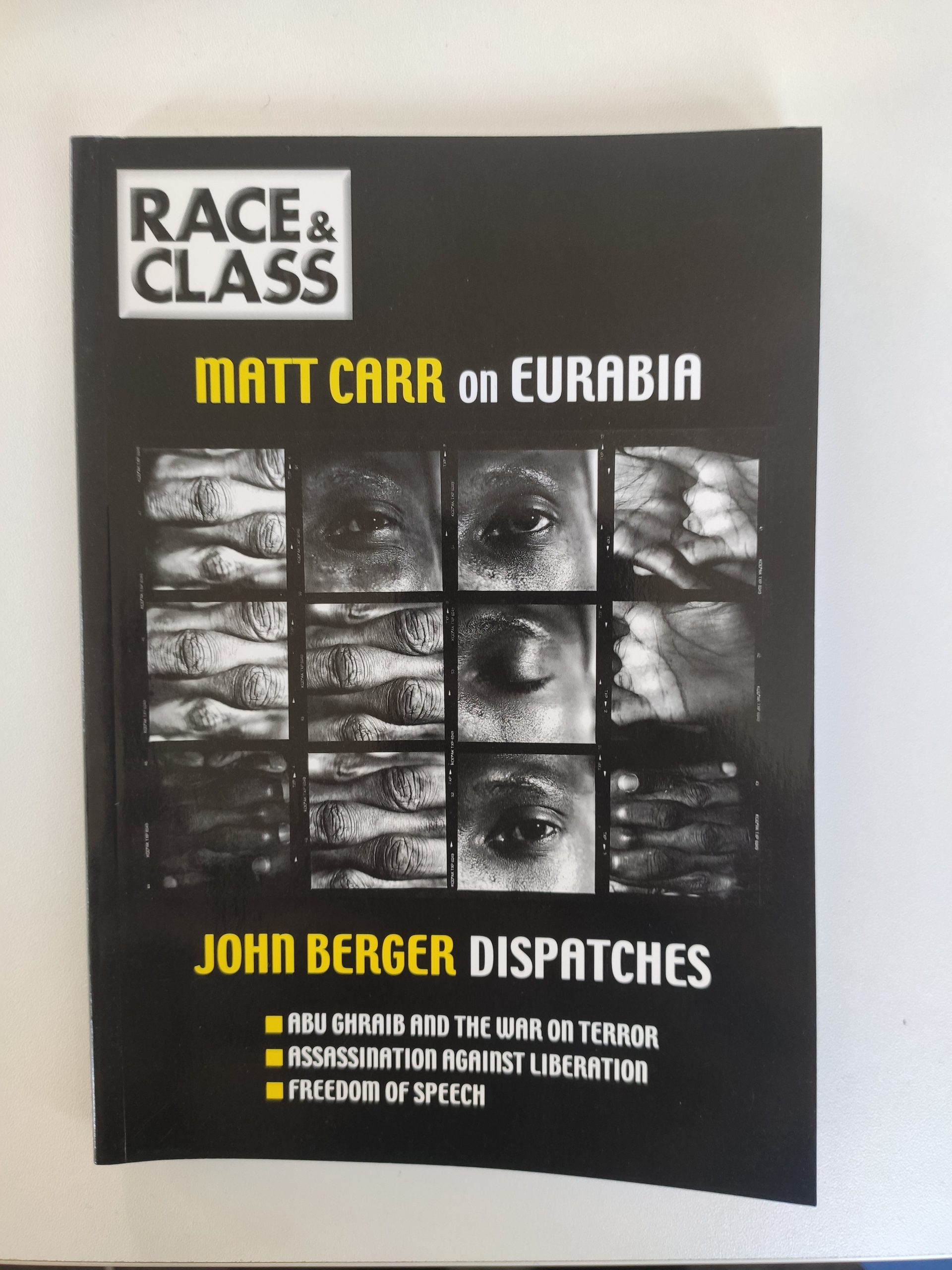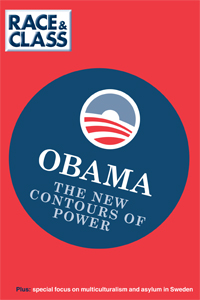Description
The July 2006 edition of the IRR journal Race & Class leads with an essay by Matt Carr on the growing respectability of the concept of ‘Eurabia’, the fantasy that Europe is at risk of being transformed into an Islamic colony, continues with John Berger’s ‘Dispatches’ from Palestine and elsewhere and carries an interview with A. Sivanandan on freedom of speech. Also featured are articles on Abu Ghraib and the US prison regime and the use of assassination against liberation movements.
You are now entering Eurabia
An increasingly influential intellectual consensus on both sides of the Atlantic has presented Europe as a doomed and decadent continent that is being transformed into an Islamic colony called ‘Eurabia’. Writer and journalist Matt Carr takes the reader on a journey through the writings of conservative historians and newspaper columnists, right-wing Zionists and European neo-fascists, who find common cause in the dangerous Islamophobic fantasy that ‘Judeo-Christian’ civilisation is under threat from Muslim immigrants.
Dispatches
‘What is happening is the careful destruction of a people and a promised nation. And around this destruction there are small words and evasive silence.’ John Berger, whose writings in various genres have been widely acclaimed, speaks of the undefeated despair of Palestine, endurance in face of walls and the loss of bearings, political and spatial.
Abu Ghraib: imprisonment and the war on terror
The exposure of torture and sadistic treatment of prisoners in US-run prisons in Iraq and elsewhere in the war on terror reflects accepted civilian prison norms in the US. Professor in sociology at the University of California, Santa Barbara, Avery F. Gordon describes how permanent war and permanent imprisonment are not exceptional but increasingly the routine means by which the racial state organises the abandonment of surplus and potentially rebellious populations and attempts to quarantine the effects of global poverty.
They had to die: assassination against liberation
The use of political assassination against key leaders of liberation movements has had a major impact on the course of history in Africa and the Middle East. Journalist Victoria Brittain surveys assassinations carried out by western states and their agents from the 1960s onwards, revealing a bloody legacy of killings of leaders from Algeria, Cameroon, Congo, Ghana, Guinea-Bissau, Morocco, Mozambique, Palestine, South Africa, Togo and Zimbabwe – all of which were linked to the interests of western imperialism.
Freedom of speech is not an absolute
In a wide-ranging interview, Race & Class editor A. Sivanandan reflects on the publication of cartoons of the Prophet Muhammad, freedom of speech and its relation to other freedoms in an unequal, globalised world.
‘Like leaves in the wind’: desperately seeking asylum in the UK
Drawing on interviews with Sudanese men, Helen Hintjens, of the Institute of Social Studies, The Hague, relates the effects of Britain’s policies of forced destitution, detention and deportation of asylum seeekers.
What caused the Cronulla riot?
The December 2005 outbreak of mass racist violence against young men of ‘Middle Eastern appearance’ on Cronulla beach, Sydney, was the culmination of a campaign of populist incitement waged in the media and by the state, argues Scott Poynting, associate professor in the school of humanities and languages at the University of Western Sydney.
Race & Class is published quarterly, in January, April, July and October, by Sage Publications for the Institute of Race Relations; individual subscriptions are £27/$47, for four issues, with an introductory rate of £20/$35 for new subscribers.
Related links
Race & Class: a journal on racism, empire and globalisation



